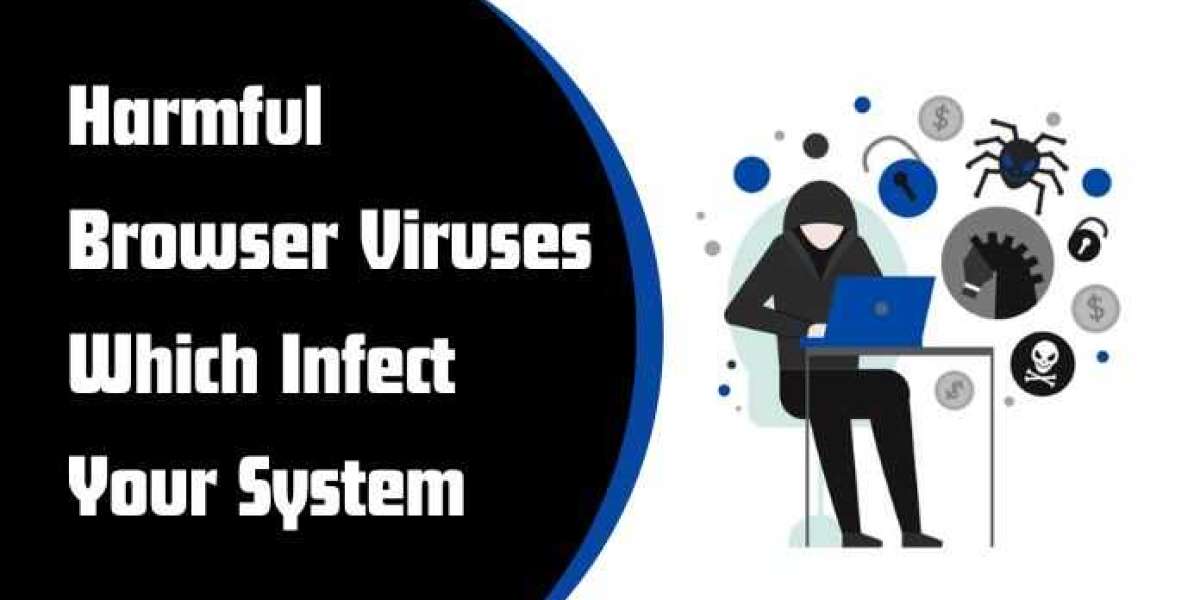Web browsers now play a crucial role in our daily lives since they give us access to information and online services in today's linked society.
Unfortunately, these browsers can also open themselves up to a variety of viruses, like realsrv virus, that seriously risk the security of our system.
In this post, we'll look at ten dangerous browser viruses that can destroy your computer, talk about how they work, and provide you with important advice on how to stay safe from them.
10 Harmful Browser Viruses Which Infect Your System
1. Browser Redirect Viruses
Characteristics: Browser redirect infections compel your web browser to go to unwelcome websites frequently full of ads or harmful material. Your homepage, browser settings, and search engine results can all be modified.
Protection Measures: Install reliable antivirus software with browser protection features as a security measure. Maintain the most recent version of your browser and exercise caution while downloading files from shady sources.
2. Adware
Characteristics: Adware is a form of malware that causes your browser to be overrun with invasive adverts. By gathering your personal information, these adverts can seriously interrupt your browsing experience and risk your privacy.
Protection Measures: Use ad-blocker extensions or software to reduce the appearance of invasive adverts as a protection measure.
Be cautious when downloading free software from unknown sources because adware frequently comes packed with such programs.
3. Browser Hijackers
Characteristics: Browser hijackers have the following traits: they take over your browser and change its settings without your permission.
They can alter your homepage, search engine, and the adverts shown to you. Browser hijackers frequently accompany freeware or shareware applications.
Protection Measures: Use caution while downloading and installing software, especially from sources you don't trust.
To avoid receiving unwanted bundled software, always select custom installation options. Review your browser's settings frequently, and eliminate any strange or questionable extensions.
4. Spyware
Characteristics: They covertly track your internet activities, gather sensitive data, and send it to nefarious parties. Your surfing history, login information, and personal information are all examples. These things can result in identity theft or financial loss.
Protection Measures: Use reliable antivirus software that has spyware detection and eradication features as a protection measure.
Keep the most recent security updates installed on your operating system and browser. Downloading data or software from shady sources should be avoided.
5. Banking Trojans
Characteristics: Banking Trojans are made to steal your login credentials for Internet banking, credit card numbers, and other private financial information.
They frequently use keylogging tactics to obtain your login information or pose as legitimate banking websites.
Protection Measures
- Run frequent scans with up-to-date antivirus software.
- Be wary of emails or sites that purport to be from your bank but are phishing scams.
- To confirm their legitimacy, examine banking websites for secure connections (https://) and padlock symbols.
6. Crypto-Mining Malware
Characteristics: Crypto-mining malware is characterized by using your system's resources to mine cryptocurrency, which lowers system performance and could lead to increased energy use.
It might enter your browser through malicious advertising or corrupted websites.
Protection Measures: Install plugins or extensions for your browser that block programs for crypto-mining as protection. To avoid infection, use trusted ad blockers and make sure your antivirus and browser are current.
7. Fake Antivirus Scams
Characteristics: False antivirus scams deceive consumers into downloading and installing malicious security programs.
These swindles persuade you to buy their fake antivirus solution and display bogus alerts about nonexistent risks, which could result in financial loss.
Protection Measures: Security precautions: Only download antivirus software from reputable websites. Be wary of pop-up messages that suggest your computer is infected and are not requested.
To find and stop bogus antivirus scams, use reliable antivirus software.
8. Zero-Day Exploits
Characteristics: Zero-day exploits are those that make use of browser flaws that software developers are unaware of.
They allow hackers to access your system and run malicious malware, frequently resulting in additional compromise or unauthorized access.
Protection Measures: Update your operating system and browser frequently to fix security flaws as a precaution. To safeguard against zero-day attacks, use web browsers that update themselves automatically in the background.
9. Drive-By Downloads
Characteristics: When you visit a hacked or malicious website, malware may unknowingly be transferred to your computer through drive-by downloads. These attacks usually profit from bugs in out-of-date browsers or plugins.
Protection Measures:
- Keep the most recent security updates installed on your operating system, browser, and plugins.
- If possible, enable automatic updates.
- Use trustworthy antivirus software with web protection options.
10. Phishing Attacks
Characteristics: Phishing attempts to trick people into disclosing private information, including login passwords or financial information, by impersonating trustworthy websites or services.
These assaults frequently occur on instant messaging, social networking, or email websites.
Protection Measures:
- Watch out for emails or messages that ask for personal information without your permission.
- Before submitting sensitive information, confirm the legitimacy of the website.
- Utilise contemporary browsers that notify you about dangerous phishing websites.
Conclusion
In today's digital environment, safeguarding your machine from dangerous browser infections is essential. You may considerably lower your danger of being a victim of these viruses' malicious behavior by being aware of their characteristics and implementing the suggested security measures.
Follow the article, keep your software up-to-date, use dependable antivirus software, and use caution when visiting the internet. By implementing these procedures, you may guarantee a safer and more secure browsing experience.




